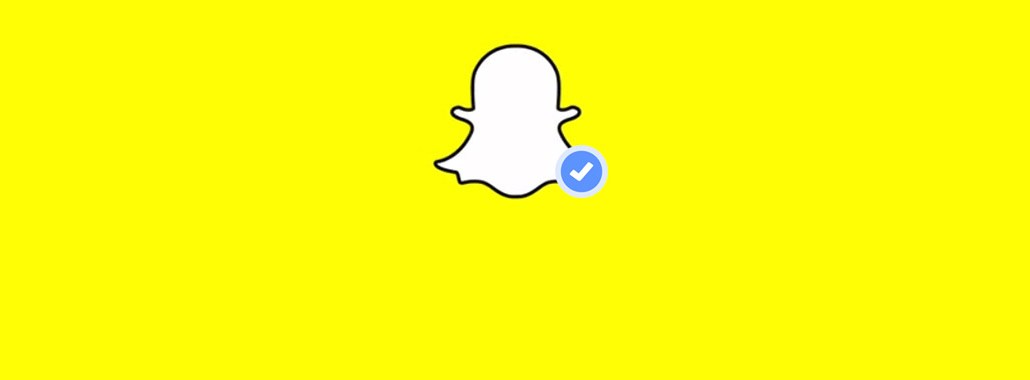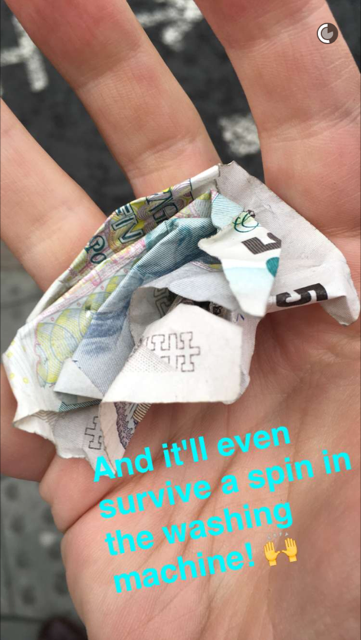
BBC News launched a Snapchat Story today, banking off a news story that doesn’t air until tomorrow. Both stories are tied to the an announcement that the country will be getting a new, high-tech £5 banknote later this year.
On TV and online, the BBC will play the new banknote news straight. On Snapchat today, however, the BBC takes a more playful approach, examining how money has changed over the years, including a whistle stop tour of the British Museum’s collection on ancient currency.
“The idea with all the Stories, while reaching audiences on new platforms, is to take them on a journey,” said Robb Stevenson, BBC News’ business and economics planning editor. With Snapchat, where the BBC has been active for two months, the broadcaster can reach new audiences and tackle the news in a quick, low-frictions way.
“We can move rapidly,” he said.

This is the third Snapchat Story to come out of the BBC News business unit. Previous Stories have included an interview with EasyJet CEO Carolyn McCall, and a day in the life of BBC News’ economics editor Kamal Ahmed on budget day, “probably the busiest day of his year.”
Despite the spontaneity of each snap, Stevenson has learned to dedicate resources to it: It is the entire job of the network’s Snapchat editor to produce content for the platform, whereas before the creation of snaps would have been only one part of a producer’s broader mandate of interviewing and producing other films for the BBC News use.
Publishers in the platform world face the challenge of balancing the desire to innovate on different social media platforms with the desire to keep the homepage a destination loyal audiences still find valuable. The BBC doesn’t shy away from experimenting on new platforms — it’s on WhatsApp, Viber and Kik — but keeping that balance is tough, said BBC News’ social media editor Mark Frankel. “We need to be alive and open, need be innovating and experimenting.”
While it’s still early, what Frankel said he has learned is that less is more. “You should tell a Story in six snaps rather than a dozen if you can,” said Frankel.
The BBC is also using Snapchat to experiment with vertical videos so it can eventually bring the format back onto its own platforms.
Frankel said they are not producing them every day, but would like to get to a point where they do every week. “The objective isn’t to offer a seamless Snapchat experience,” he said. “We’re not resourced for that. It’s to think innovatively about relevant stories.”
One of the BBC’s most successful cases was covering the Iowa caucus, partly because Snapchat featured it. But Frankel keeps quiet about the numbers. Stories have also been used to promote to other channels, for instance the final snap from a Story on the migrant crisis urged users to watch the upcoming Panorama program on the same topic.
There are no plans for the BBC to be on Discover, to sponsor a channel, or to launch a pop-up channel like the Huffington Post did with its sleep-themed Recharge yesterday. Although there are plans to use Snapchat widely around the EU referendum, taking place June 23.
More in Media

Digiday+ Research: Dow Jones, Business Insider and other publishers on AI-driven search
This report explores how publishers are navigating search as AI reshapes how people access information and how publishers monetize content.

In Graphic Detail: AI licensing deals, protection measures aren’t slowing web scraping
AI bots are increasingly mining publisher content, with new data showing publishers are losing the traffic battle even as demand grows.

In Graphic Detail: The scale of the challenge facing publishers, politicians eager to damage Google’s adland dominance
Last year was a blowout ad revenue year for Google, despite challenges from several quarters.





